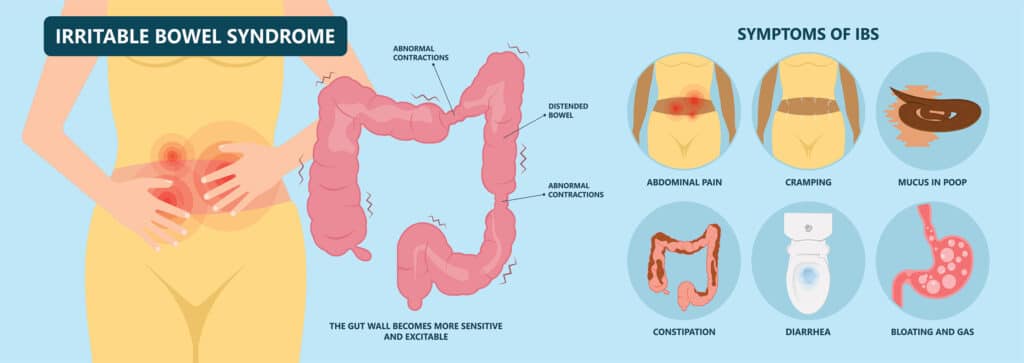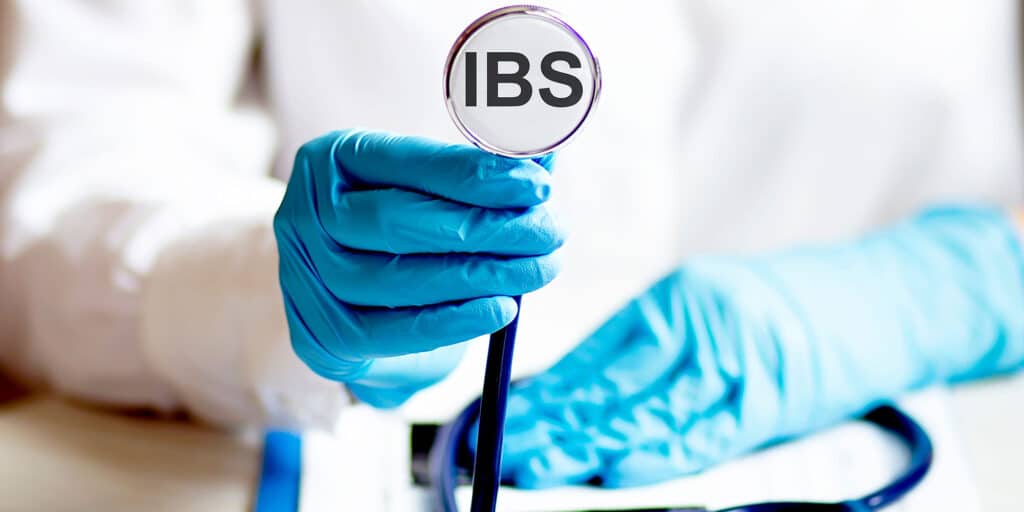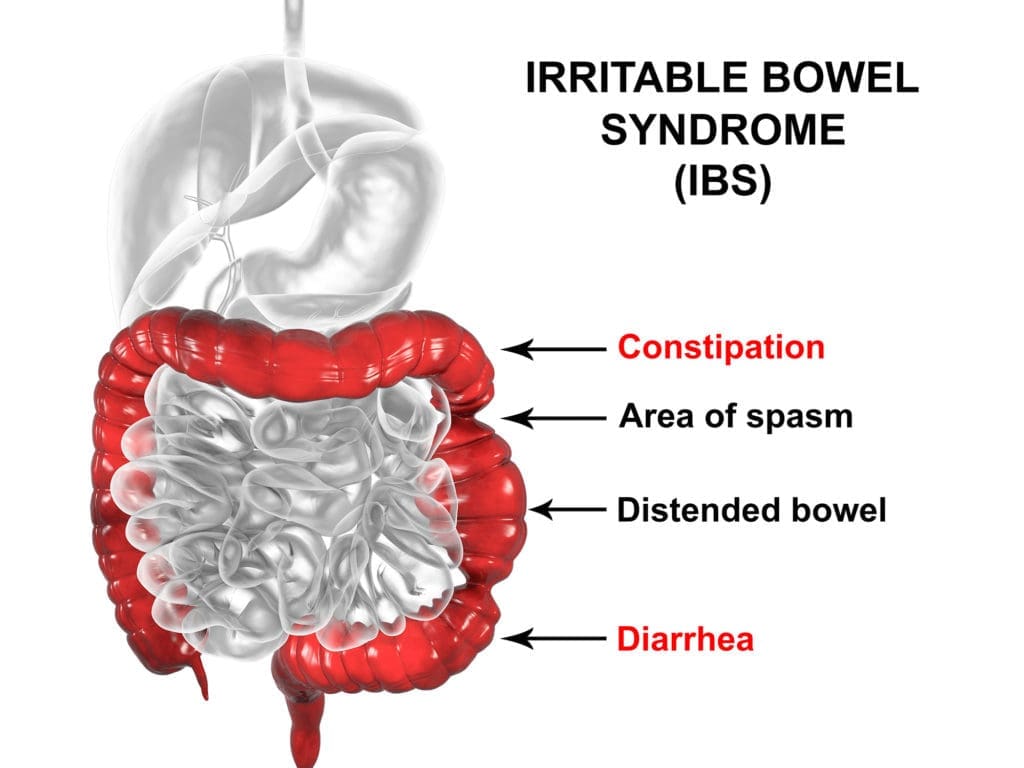12% of US adults suffer and look for relief from Irritable Bowel Syndrome (IBS). Unfortunately, IBS causes moderate to severe symptoms that can disrupt daily life. Other names for it include mucous colitis, irritable colon, and spastic colitis.
IBS is a chronic condition. However, with the right medical advice and long-term care, it can be managed. Read on to learn more about the condition and how to get relief for IBS systems.
Symptoms of Irritable Bowel Syndrome:
 People with IBS experience unhealthy changes in bowel movements. Some of these IBS symptoms include:
People with IBS experience unhealthy changes in bowel movements. Some of these IBS symptoms include:
- Abdominal pain
- Bloating
- Constipation
- Cramping
- Diarrhea
- Gas
- Mucus in stool
These symptoms are not always constant, either. People with IBS may suffer from alternating episodes of constipation and diarrhea. Some symptoms, like bloating, dissipate following a bowel movement. Although IBS is chronic, it is not always persistent. It may fix itself and provide IBS relief in some cases. But it can come back after a month or two.
People can reduce their symptoms through dietary and lifestyle changes. However, those with severe symptoms may also need medications and counseling.
When Should You See a Doctor
Your doctor will diagnose you with IBS based on your symptoms. Before diagnosis, they may:
- Perform blood tests to check for anemia and celiac disease
- Check for food allergies
- Check a stool sample for infection
- Perform a colonoscopy
Colonoscopies are rare because doctors only perform them if there are signs of more serious conditions. These may include cancer, colitis, or inflammatory bowel disease.
If your symptoms are mild or moderate, you may be able to manage the condition without your doctor.
However, if you experience any of these severe symptoms, you should visit a doctor right away:
- Anemia caused by iron deficiency
- Difficulty swallowing
- Diarrhea at night
- Persistent abdominal pain not relieved by passing gas
- Vomiting
- Weight loss
What Causes Irritable Bowel Syndrome?
IBS is a complex condition, and the exact cause is unknown. However, contributing factors include:
- Immune system inflammation: People with IBS sometimes have immune systems that are overly active in their intestines. Increased activity within this area is linked to pain and diarrhea.
- Intestinal muscle contractions: The intestines are lined with muscles that assist in the digestive process. Especially strong contractions may cause bloating, gas, and diarrhea.
- Nervous system abnormalities: Nerves send signals between the brain and intestines. Nerve issues cause your body to overreact during normal digestion. This can lead to constipation, diarrhea, and abdominal pain.
- Microflora changes: The “good bacteria” assist healthy digestion; you can’t digest anything without them. Some people with IBS, however, have different microflora that could cause their IBS symptoms.
What Are the Risk Factors for IBS?
Many people may experience symptoms of IBS. Risk factors for the condition include:
- Sex: 2 out of 3 IBS patients in the US are women. For post-menopausal women, estrogen therapy can also trigger IBS.
- Age: IBS often affects people under the age of 50.
- Family history: Genes and environment contribute to IBS. For example, consistently eating foods that upset your stomach could lead to long-term issues.
- Mental illness: Individuals suffering from mental health conditions have an increased risk of IBS. Specifically, depression and anxiety are common in IBS patients.
Guide to Reducing IBS Symptoms
Treatment of IBS can help patients live normal lives. For mild and moderate symptoms, doctors advise diet and lifestyle changes such as:
- Regular exercise
- High-fiber diet
- Getting enough sleep
- Reducing stress
- Avoiding foods that trigger symptoms
Foods your doctor may recommend removing from your diet include:
- FODMAPs: Carbohydrates including fructose, fructans, and other possible irritants are known as FODMAPs. Certain fruits, vegetables, grains, and dairy products have these carbohydrates. A low FODMAP diet is associated with reduced IBS symptoms.
- Gluten: Research shows people with IBS report improvement in diarrhea symptoms if they remove/minimize gluten in their diets. This includes wheat, barley, and rye products. This can prove effective even when patients do not have celiac disease.
- Gas-producing foods: People with severe bloating or gas should avoid alcohol and carbonated beverage, raw fruits, vegetables like cabbage and broccoli, and caffeine.
Managing Moderate to Severe IBS Symptoms
In cases of moderate to severe IBS, your doctor may advise a combination of medication and other therapies.
If you have a co-occurring mental health condition due to IBS, your doctor may also recommend counseling. This is because patients suffering from IBS who have undergone cognitive-behavioral therapy have achieved positive results in symptom management.
Medications for IBS relief include:
- Anticholinergic medications: These relieve painful bowel spasms and reduce the frequency of diarrhea.
- Anti-diarrheal medications: Over the counter medicine can control diarrhea. Your doctor may also prescribe a bile acid binder to treat acid reflux or other digestive issues.
- Fiber supplements: Increasing your fiber intake can promote healthier and more regular digestion.
- Laxatives: If a patient with IBS suffers from constipation and fiber is not enough, laxatives can be good solutions.
- Peppermint oil: Enteric-coated peppermint capsules can relieve abdominal pain, diarrhea, and bloating.
- Pain medication: Doctors use pregabalin and gabapentin to reduce bloating and abdominal pain.
- SSRI antidepressants: Selective serotonin reuptake inhibitors (SSRI) antidepressants help manage depression and pain from IBS symptoms.
- Tricyclic antidepressants: These regulate neurons that control intestines, thus reducing pain symptoms. For those suffering from IBS symptoms without depression, your doctor will recommend a lower than recommended dose. Side effects can include dizziness or drowsiness, so they are best taken before bedtime.
IBS Relief Specific Medications


- Alosetron: Drug that relaxes the colon to slow the movement of waste. This medication is in a special class. It is intended for severe cases of IBS in women who haven’t responded to other medications and treatments. Unfortunately, it isn’t approved for men. It has been linked to a rare, but serious side effects. Alosetron should only be taken in severe cases when other treatments aren’t successful.
- Eluxadoline: Medication to reduce diarrhea symptoms through easing contractions and fluid secretion in the intestines. Eluxadoline (Viberzi) has moderate side effects including abdominal pain, constipation, and nausea. It’s also associated with an increased risk of pancreatitis, particularly for those at high risk for the condition.
- Lubiprostone: Medication to increase fluid passage to improve digestion. It was approved only for women who haven’t responded to other treatments.
- Rifaximin: Antibiotic that can decrease harmful bacteria in the gut and reduce diarrhea symptoms.
Currently, other medications are in clinical trials to treat IBS, but are not approved for public consumption.
IBS Relief and IBS Symptoms Outlook
IBS is manageable for the majority of people. But even people with mild IBS symptoms experience great discomfort and mental distress. If you are suffering from IBS, speak with your doctor to see what options you have available.
Through medication and lifestyle changes, you can reduce IBS symptoms and live a normal life.
What helps you manage your IBS symptoms?
Tell us about your pain journey in the comments.
What IBS Relief Topics Should We Cover?






My younger brother has IBS and is trying to find ways to relieve his pain and discomfort from it. It is so good to know that regularly exercising, reducing stress, and eating enough fiber can help reduce symptoms. I’d imagine it could also be helpful to find a GI disorder treatment service to help heal and treat him.